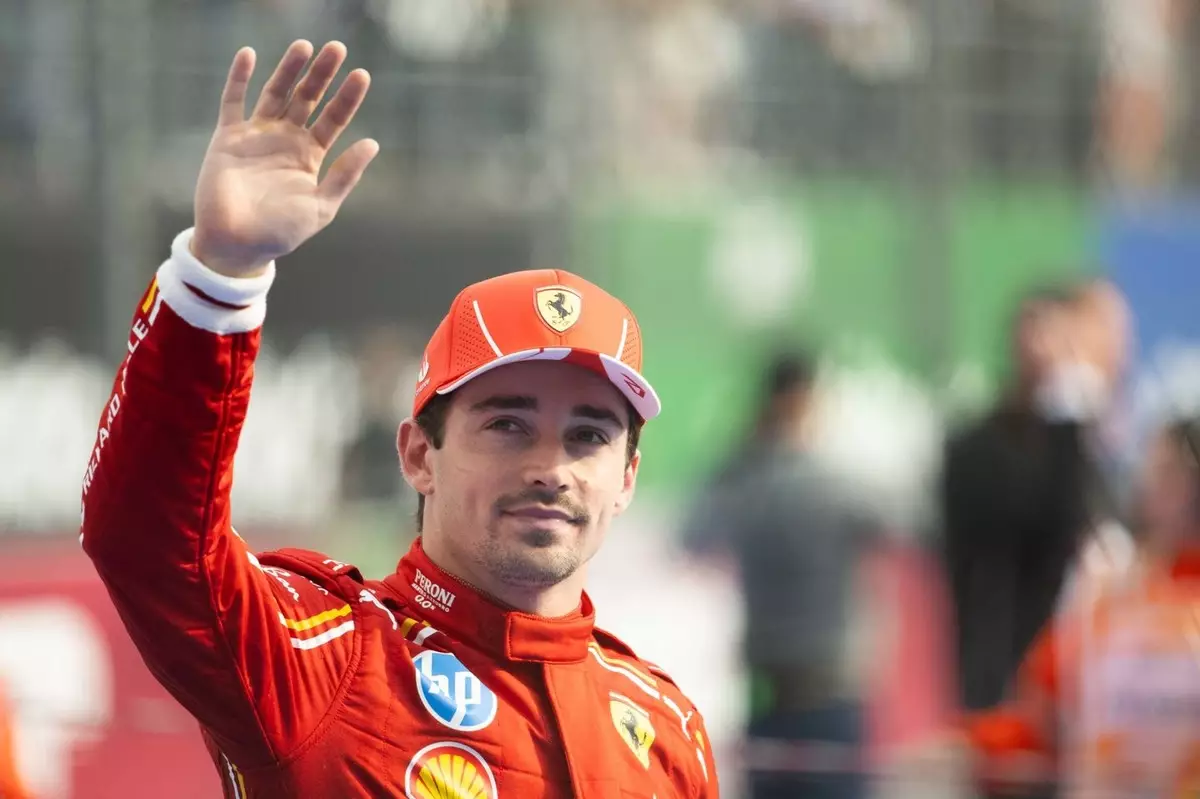In the world of Formula 1, where precision and performance reign supreme, the actions and words of drivers often hold significant weight. Recently, a situation involving Ferrari driver Charles Leclerc has sparked discussions about the regulations set forth by the FIA, especially concerning public behavior in press conferences. This piece will reflect on the incident and the implications of the FIA’s potential investigations, shedding light on the broader issue of expression and conduct within the sport.
During the Mexico Grand Prix, Charles Leclerc found himself in a precarious situation when he was asked about a moment of potential disaster during the race. Leclerc had secured third place, but only after nearly crashing at the challenging Peraltada corner. In responding to a media inquiry, he expressed his relief at escaping the incident, using a profanity that many have found relatable but which contradicts the FIA’s conduct regulations. His spontaneous utterance, “f**k,” has landed him under scrutiny similar to that faced by Red Bull’s Max Verstappen, who, in a prior event, received community service for a similar lapse.
As the FIA assesses whether they should pursue investigation or punitive measures against Leclerc, it is important to consider the wider context of the governing body’s actions. The FIA has recently made a concerted effort to control the conduct of drivers and officials, aimed at fostering a respectful environment amid the often-intense emotions of racing. This incident notably coincides with previous punitive measures against others in the motorsport community, indicating a broader clampdown on unsportsmanlike behavior.
The Implications of FIA Regulations
At the heart of the potential inquiry lies Article 12.2.1k of the FIA’s International Sporting Code, which outlines acceptable behaviors and speech among its members. The stipulations included in this rule aim to maintain a level of decorum and respect for the FIA as an institution and to protect its members from verbal abuse. However, these clauses can potentially constrict candid expression, often rendering drivers reluctant to speak freely about their experiences.
The enforcement of such regulations raises essential questions about the balance between behavior and the right to genuinely express emotions. Should athletes be penalized for candid expressions of relief or frustration? Or does the responsibility of maintaining a professional image outweigh the need for authenticity in a sport fueled by passion?
Leclerc’s case is not an isolated incident but rather a reflection of a growing tension between professional standards and personal expression. Max Verstappen’s reaction to his prior sanction—boycotting press conferences—highlights the potential fallout from the FIA’s strict interpretation of its regulations. It emphasizes a growing dissatisfaction among drivers who may feel that their ability to communicate openly is being stifled.
This delicate balancing act sparks a vital discourse on how the FIA should navigate this landscape. While it is crucial to uphold standards of conduct, it’s equally essential to foster an environment where drivers feel secure in their ability to express authentic reactions—crucial for any sport that thrives on emotional investment.
As the FIA deliberates over the next steps regarding Charles Leclerc, this incident serves as a catalyst for a broader reevaluation of its policies on public conduct. The current approach could be perceived as overly punitive, which risks alienating talented drivers who may choose to limit their authentic expression in an effort to comply with stringent regulations.
The FIA has an opportunity to refine its policies, ensuring they promote respect without imposing stifling restrictions on personal expression. This incident, couched within the growing discourse on professional standards versus personal rights, will likely serve as a pivotal moment in the ongoing evolution of FIA regulations. Ultimately, a more lenient and understanding approach may lead to more vibrant and relatable interactions between drivers and fans—something that could greatly enrich the sport’s culture.

